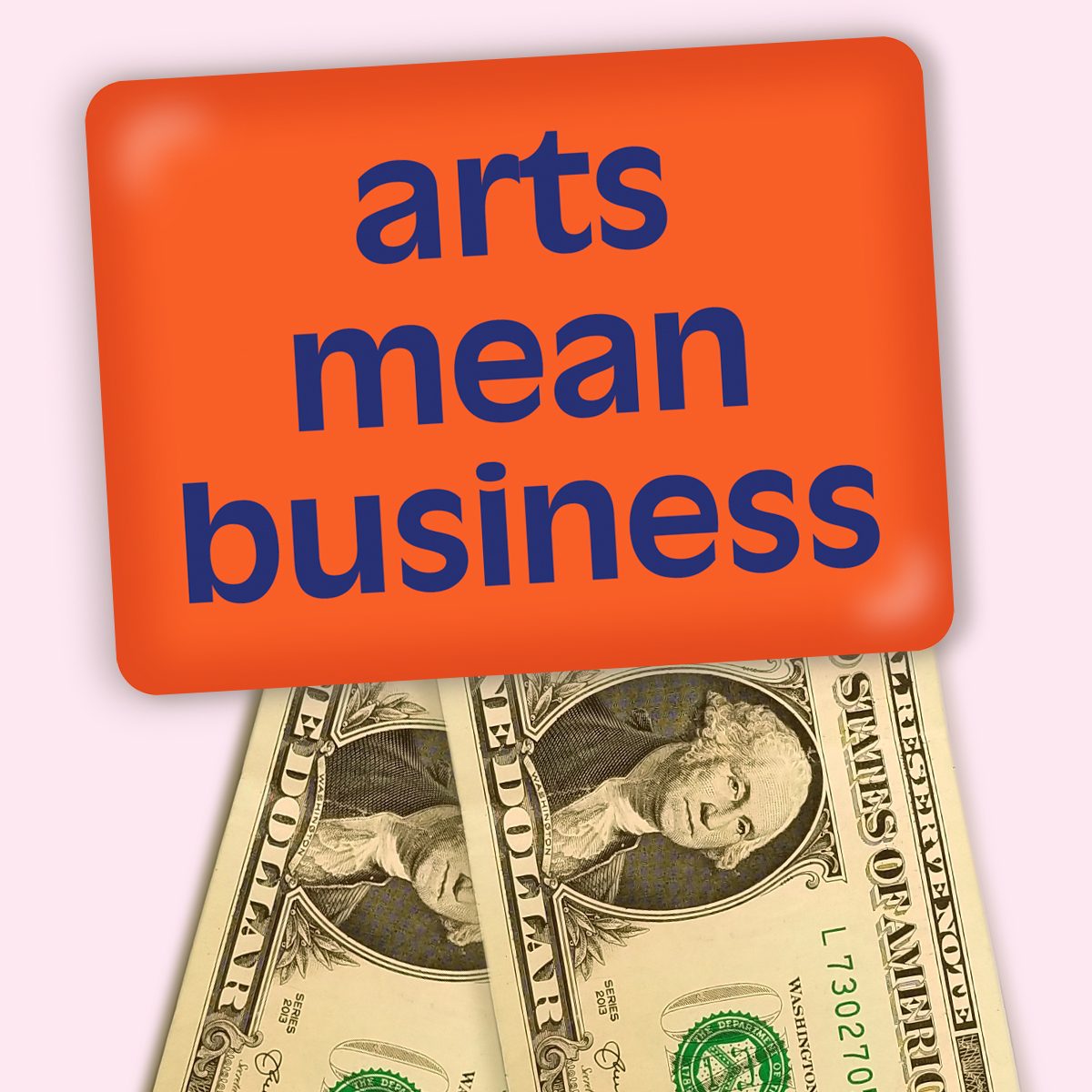It’s the Economy, Genius!
 Economic impact data has been a staple of arts advocacy for decades, but we often do not use it as we should. Many of us followed our hearts into the arts with little, if any thought for our finances or the economy as a whole. As arts advocates we put forward our economic research and data as a reason why we need the arts and why they should receive public support. If economic impact were the only reason for public funding, then every industry would receive taxpayer dollars. We have to change our thinking if we want to change minds. We need the arts like we need food, the money is just a sign of our hunger. We need the arts like we need air, the dollars are just the byproduct we exhale.
Economic impact data has been a staple of arts advocacy for decades, but we often do not use it as we should. Many of us followed our hearts into the arts with little, if any thought for our finances or the economy as a whole. As arts advocates we put forward our economic research and data as a reason why we need the arts and why they should receive public support. If economic impact were the only reason for public funding, then every industry would receive taxpayer dollars. We have to change our thinking if we want to change minds. We need the arts like we need food, the money is just a sign of our hunger. We need the arts like we need air, the dollars are just the byproduct we exhale.
It is important that the North Carolina Nonprofit Arts and Culture Industry generates $2.12 billion in spending; $940 million by organizations and $1.18 billion in additional audience spending. This not only shows that it is a significant industry, but it illustrates that the citizens of this state are engaging with those organizations. If you want to know which part of your body is alive, follow the blood. If you want to know what part of your state is alive, follow the money. The best things in life may be free, but the things that we invest in speak volumes about our priorities and values individually, as businesses and organizations, and even as a city, state, or country.
It is useful to know that the Nonprofit Arts and Culture Organizations in North Carolina support 71,977 Full Time Equivalent (FTE) Jobs; 37,194 by organization spending and 34,783 from additional audience expenditures. The story of these numbers is not that the nonprofit arts sector has value because it supports these jobs, but instead that these jobs exist because the nonprofit arts sector has value. Job creation will almost always make the ears of an elected official perk up, but we must reinforce that those jobs are only there because they serve the need for the community to have a cultural voice and to feel connected to its own identity.
Of course, we should know that on average 1 out of every 3 attendees to an arts and culture event in this state is not local, and that non-locals will spend on average twice as much in that community, in addition to the cost of the event. It is obvious that any activity that brings dollars into the community from the outside grows the local economy and has a positive impact. But what it also means is that we value each other across county lines and choose to explore the talents and expressions of others to enjoy and discover ourselves. Because we are human and that is what we do. The fact that the farther away you are from your house, the more expensive things become, is an economic fact. Our collective willingness to make that investment of travel time and additional expenses is what truly speaks to the importance of the arts.
But the economic reality of the arts may be best represented in its relationship to technology. Two constants of civilization are that we have always made both artistic and technological advancements, and that historically when one excels the other will as well. However, while the production of food, or buildings, or gadgets ranging from typewriters to smart phones becomes faster and cheaper as each advancement is perfected, those pursuits that are the truest expression of the human experience, while they may be enhanced by technology, cannot be expedited by it. It takes just as long to master the violin, write a novel or play, create a ballet, or to compose a symphony as it did centuries ago. And while the investment of time needed for each art does not necessarily increase, the needed investment of dollars does.
It is for this reason much of our Cultural Economy must reside in the nonprofit sector. We as a society have chosen to support the arts, not only with our interests, but with our dollars. Donors to arts organization make a personal choice to support these pursuits, not only so they can exist, but so they can be accessed by all. So why should government support the arts? Because in a democracy, we are our government, and our government should represent us by being invested, and playing a role in a variety of areas that are also served by nonprofits. We do not question this public-private need when it comes to health care, housing, education, and hunger. Government acts and invests in conjunction with nonprofits to insure that everyone can have access to these things because they are necessities, and the arts should be no different.
We are not just affected by our economy, we are the economy, which is why it speaks in so many ways to who we are as a society. The arts are not a necessity because of their economic impact, they impact the economy because they are a necessity and an essential piece of our humanity…genius.

